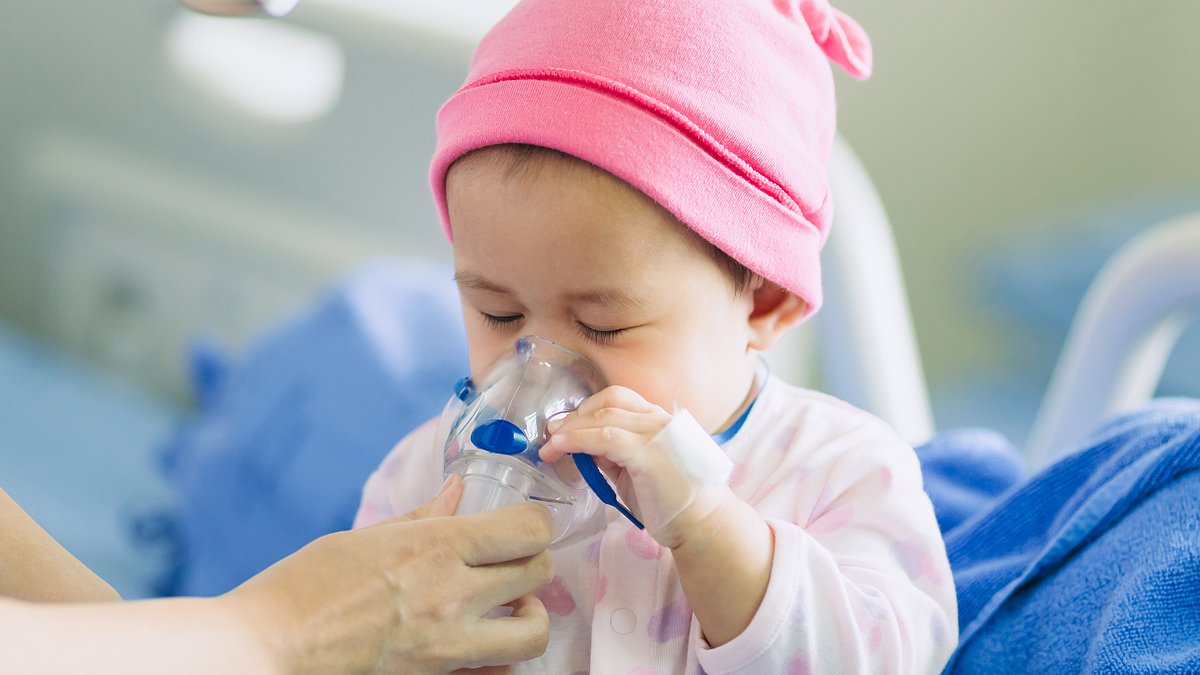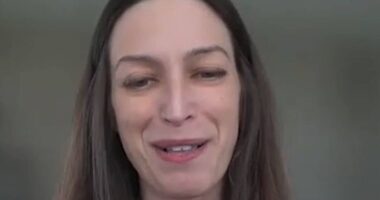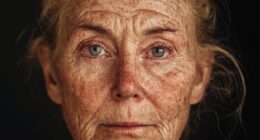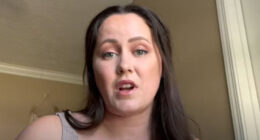A baby has died from whooping cough in Alaska amid a deadly resurgence of the Victorian-era disease.
Medically known as pertussis, the bacterial infection was a common childhood illness during the early 1900s, but the advent of a vaccine in the 1940s virtually eradicated it in America.
But record numbers of minors are not being vaccinated, which is fueling outbreaks in multiple states, including Alaska where officials say it’s reached ‘epidemic’ levels.
Details about the infant who died, including their sex, name, and hometown, have not been made public to protect the family’s privacy.

Infants less than three months old are at particularly high risk for whooping cough (stock image)
Whooping can can cause ‘violent coughing fits’ that last for months, as well as fever, difficulty breathing and congestion.
The vaccine is typically given to infants at two months old, but pregnant women can get it during their final trimester to pass immunity along to their babies. Children should then get boosters every ten years.
Without those boosters, immunity gradually wanes, and those children become more susceptible to the bacterial infection.
State epidemiologists blame this waning immunity, as well as vaccine hesitancy coming out of the Covid pandemic, for causing the highest rate of infections since 2016.
But soon after reporting the death on Sept. 11, health officials renewed calls on the public to vaccinate their infants and get their older children boosted.
In the US overall, more than 10,000 cases are typically reported each year, and up to 20 babies die from it.
As of last Friday, 2024’s case count had reached 234, according to CDC tracking. Trendlines suggest this year’s end-total could surpass that of 2023, which was 624.
More than four times as many cases of pertussis have been reported as of week 33 this year, August 17, 2024, compared to the same time in 2023.
State epidemiologist Dr Joe McLaughlin said that about 70 percent of cases have been in children under 15 years old, and 12 percent have been in infants. Of that 12 percent, Dr McLaughlin said, 45 percent have been hospitalized.
He told Talk of Alaska on Tuesday: ‘And just for context, we had 149 cases reported in 2016, and that was the previous highest year in the past eight years.’
The ‘whooping’ in whooping cough refers to the sound children make after a coughing fit as they struggle to breathe.

Pertussis cases have risen particularly sharply in babies under one year old. Parents are encouraged to get their infants vaccinated at around two months old
The bacteria Bordetella pertussis and Bordetella parapertussis cause infection by attaching to the tiny hair-like structures that extend from the lining of the upper respiratory tract, which includes nasal passages, sinuses, throat, and voice box.
From there, the bacteria release toxins that damage those hair-like structures and the cells lining the respiratory tract.
Mucous builds up, the airways swell, and the body fights to clear them through violent coughing, the hallmark symptom of infection.
The infection is highly contagious and spread through the air when a person coughs, sneezes, and talks. It’s more infectious than the flu, and in a population that has not been sufficiently vaccinated, a single case can lead to 17 others within around three weeks.

The current case count in Alaska is the highest recorded in the state in the past nine years
Life-threatening complications are most common in babies under one year old, and about a third of babies infected are hospitalized.
Sixty-eight percent of babies will develop sudden pauses in breathing, known as apnea, and 22 percent will develop pneumonia. One percent will die.
Dr McLaughlin said: ‘The vaccines that are currently available for pertussis are highly effective, particularly in the first three to five years after vaccination. But then immunity gradually wanes over time.’
According to Kathy Bell, the Anchorage School District’s health director, more than 1,200 students out of roughly 44,000 have been exempted from vaccine requirements, primarily for religious reasons.
She said: ‘It’s an individual choice. We can’t force people to get vaccines. But they were developed for a reason.’
The rising rate of new whooping cough infections is not confined to Alaska. This year alone, the US has recorded more than 7,00 pertusses cases, a 300 percent increase over the same period in 2023.
In 2024, Pennsylvania and California had the most cases, 1,035 and 702, respectively.
Cases have also been identified in every US state except Wyoming this year.










